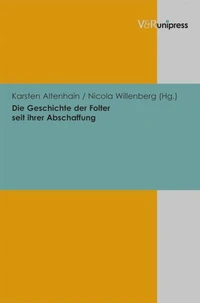Since the signing of the international conventions prohibiting torture, this extreme form of violence seemed to remain a problem only in individual dictatorships. Discussions over the permissibility of "preventive" torture or torture to save people's lives and methods practised in the "war on terror" question this assumption. Since the mid-1990s there has been an increase in the portrayal of torture on television, in films and computer games, and even in its use by positive heroes.
At the same time medical and psychological evidence testifies to the serious psychological consequences of torture for the victims. Torture not only threatens individuals but also the fundamental social cohesion of human life. The contributions to this volume discuss various aspects of torture. They range from media law provisions to the visual representation of torture, how torture is dealt with in the context of legal residential status procedures, and how medicine and psychology relate to torture and historical and current legal discourse.
Since the signing of the international conventions prohibiting torture, this extreme form of violence seemed to remain a problem only in individual dictatorships. Discussions over the permissibility of "preventive" torture or torture to save people's lives and methods practised in the "war on terror" question this assumption. Since the mid-1990s there has been an increase in the portrayal of torture on television, in films and computer games, and even in its use by positive heroes.
At the same time medical and psychological evidence testifies to the serious psychological consequences of torture for the victims. Torture not only threatens individuals but also the fundamental social cohesion of human life. The contributions to this volume discuss various aspects of torture. They range from media law provisions to the visual representation of torture, how torture is dealt with in the context of legal residential status procedures, and how medicine and psychology relate to torture and historical and current legal discourse.

 , qui est-ce ?
, qui est-ce ?